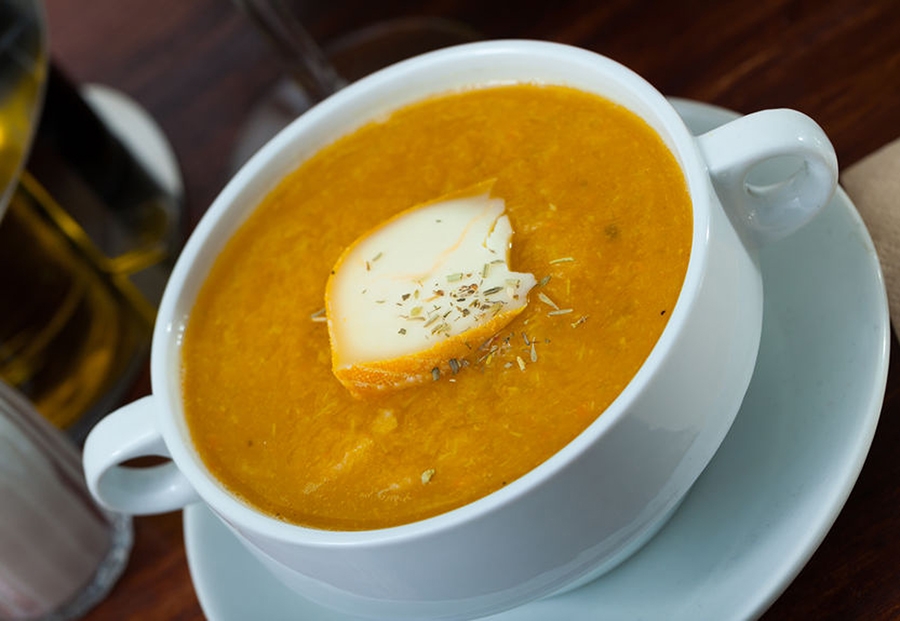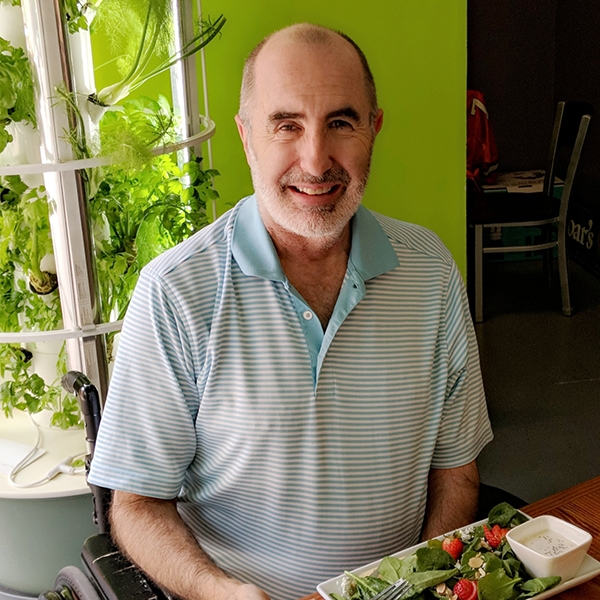Healthy and Comforting Winter Eats
By Steve Norton
The arrival of winter means cooler temperatures and reduced daylight hours, which stir up the desire for foods that provide warmth and comfort.
Steve Norton, co-facilitator of BIAAZ’s The Brain Cave Men’s Discussion Group and author of The Noggin column, “The Cerebral Chef”, offers recipes, ideas, and tips for incorporating and enjoying delicious brain-boosting foods.
Healthy and Comforting Winter Eats
By Steve Norton
The arrival of winter means cooler temperatures and reduced daylight hours, which stir up the desire for foods that provide warmth and comfort.
Steve Norton, co-facilitator of BIAAZ’s The Brain Cave Men’s Discussion Group and author of The Noggin column, “The Cerebral Chef”, offers recipes, ideas, and tips for incorporating and enjoying delicious brain-boosting foods.
The arrival of winter means cooler temperatures and reduced daylight hours, which stir up the desire for foods that provide warmth and comfort. Many vegetables and herbs contain nutritional benefits and when combined into a hearty soup, will leave you with that longed-for feeling of contentment.
The following are a few of the delicious and healthy ingredients you’ll find in this issue’s recipes. For starters, cauliflower not only has anti-inflammatory properties, but it contains choline—a Vitamin B that assists in brain development, memory, and learning.
Butternut squash is loaded with vitamins and nutrients, including Omega-3 fats, B vitamins, beta-carotene, vitamin C, potassium, and magnesium. These all help keep your brain functioning and lower stress-related anxiety.
Although carrots and celery are largely made up of water, both contain several vitamins and minerals. Carrots are a good source of beta carotene, which converts to vitamin A, and supports immunity, as well as skin and eye health. They also contain soluble fiber, which helps lower blood sugar levels; vitamin K to help with blood clotting and protecting bone density; potassium for controlling blood pressure; and antioxidants for fighting against inflammation.
Celery also contains vitamin A, vitamin K, and folate, which help support mental performance. In addition, celery reduces inflammation, supports digestion, and has a slowing effect on blood sugar.
Garlic boosts blood flow to the brain and thins the blood, which assists with preventing blood clots. Thyme helps reduce anxiety and improve overall mood.
Enjoy reaping the health benefits while relishing the fresh flavors and textures of this delicious winter vegetable soup! Serve with my savory, low-carb, gluten-free, grain-free, keto biscuits (recipe next page) as a tasty side.

Winter Vegetable Soup with Butternut Squash & Cauliflower
Servings: 6
Prep: 20 min.
Cooking: 35 min.
Resting: 10 min.
TOTAL TIME: 65 min.
Ingredients
- 2 tsp. olive oil
- 1 medium onion, chopped
- 3 cloves garlic minced
- 2 medium carrots
— cut into thin half circles - 2 medium celery stalks
— thinly sliced - 3/4 tsp. dried thyme
- 1/4 + 1/8 tsp. dried chili flakes
- 1/2 tsp. kosher salt
- 1 1/2 Tbs. tomato paste
- 1 1/4 lb. butternut squash
(about 4 cups) - 3/4 lb. cauliflower
(about 3 cups) - 3 C. vegetable broth
- 1 1/2 C. water
- 2 bay leaves
- 1/4 C. minced Italian parsley
- Salt & pepper to taste
Instructions
Heat olive oil in a large saucepan set over medium heat. Add the onion and cook, stirring occasionally, until it just starts to soften, about five minutes. Add the garlic, carrots, celery, thyme, dried chili flakes and salt. Cook until the vegetables are tender, about five minutes. Stir in tomato paste and cook for an additional minute. Stir in the butternut squash, cauliflower, vegetable broth, water, and bay leaves. Bring to a boil, then reduce to a simmer. Partially cover the saucepan and cook until the squash and cauliflower are tender, 15-20 minutes. Let the soup cool for 10 minutes, then transfer three cups of the soup to a blender. Puree until almost smooth, then stir the mixture back into the soup. Stir in the parsley, add salt and pepper to taste, and serve.

Biscuits with Thyme & Cheese
Servings: 12 biscuits
Prep: 5 min.
Cooking: 25 min.
TOTAL TIME: 30 min.
Ingredients
2 large eggs
- 1/2 C. heavy whipping cream
- 2 Tbs. grass-fed butter, softened
- 2 C. almond flour
- 1 tsp. salt
- 1/2 tsp. thyme
- 1 C. shredded cheese, Cheddar, or Parmesan
Instructions
Preheat oven to 375 degrees. Whisk the eggs in a medium bowl. Stir in the cream and butter. Continue stirring until mixture is smooth. Add the almond flour, salt, and thyme to the same bowl. Mix well and fold in the cheese. Divide the dough evenly into 12 portions. Drop the biscuits onto a lightly greased baking sheet or roll them into your hands first and then press down gently onto the baking sheet. Space them about one inch apart. Biscuits will rise a bit during baking but will not spread out much. Bake for about 25 minutes, until tops are golden brown. Remove from the oven and let cool before serving. Biscuits will continue to firm while cooling.
ABOUT THE AUTHOR —
Steve Norton, co-facilitator of BIAAZ’s The Brain Cave Men’s Discussion Group, was diagnosed with Type II Diabetes in 2006. While working as a private chef for a family in northern California in 2012, he experienced a hemorrhagic stroke, which caused paralysis on the left side of his body. Even though he had spent years ensuring those he cooked for ate healthy meals made with fresh ingredients, his own eating habits were poor due to long work hours and a busy schedule. The stroke proved to be the wake-up call Steve needed to take charge of his health and what he put into his body. He now uses food as medicine and believes people can heal their bodies from the inside-out.
ABOUT BRAIN INJURY ASSOCIATION OF ARIZONA
The Brain Injury Association of Arizona (BIAAZ) is the only statewide nonprofit organization dedicated to improving the lives of adults and children with all types of brain injuries through prevention, advocacy, awareness and education. BIAAZ also houses the Arizona Brain Health Resource Center, a collection of educational information and neuro-specific resources for brain injury survivors, caregivers, family members and professionals.
What began in 1983 as a grassroots effort has grown into a strong statewide presence, providing valuable life-long resources and community support for individuals with all types of brain trauma at no charge.






